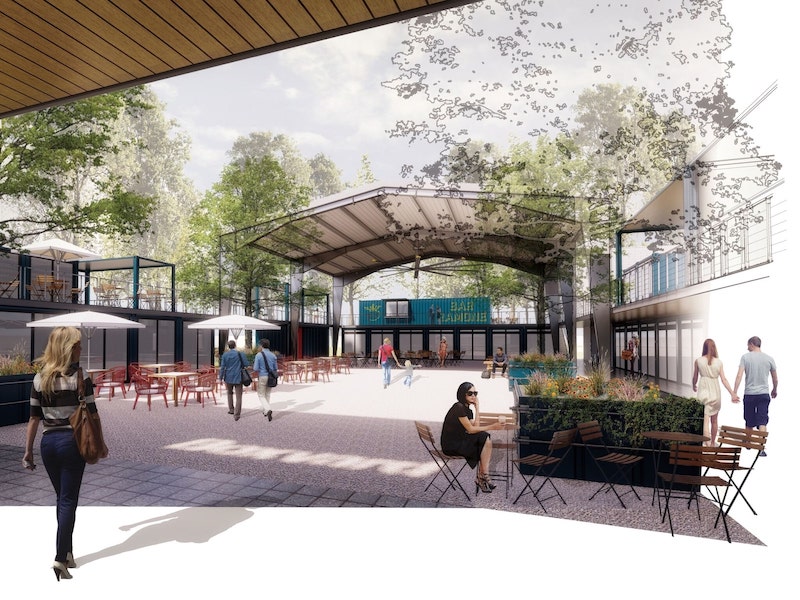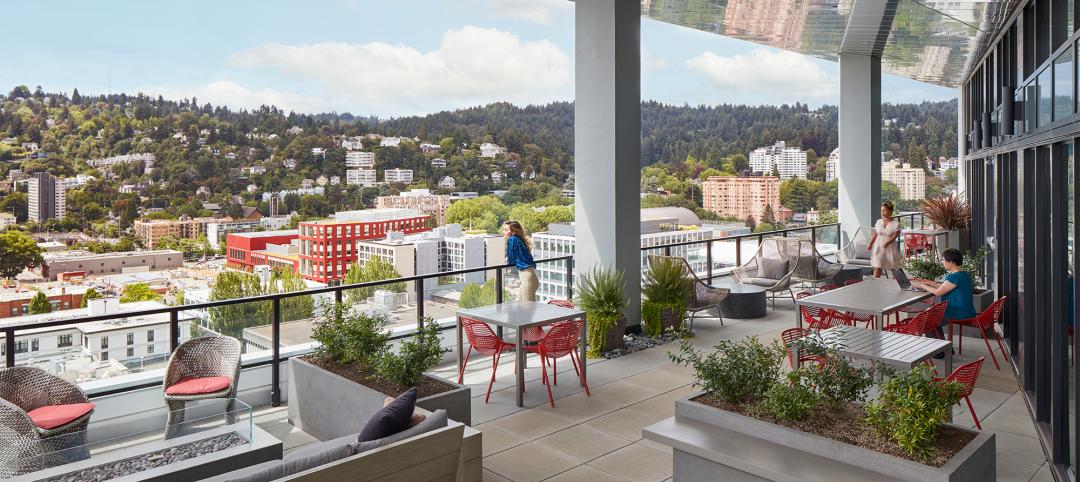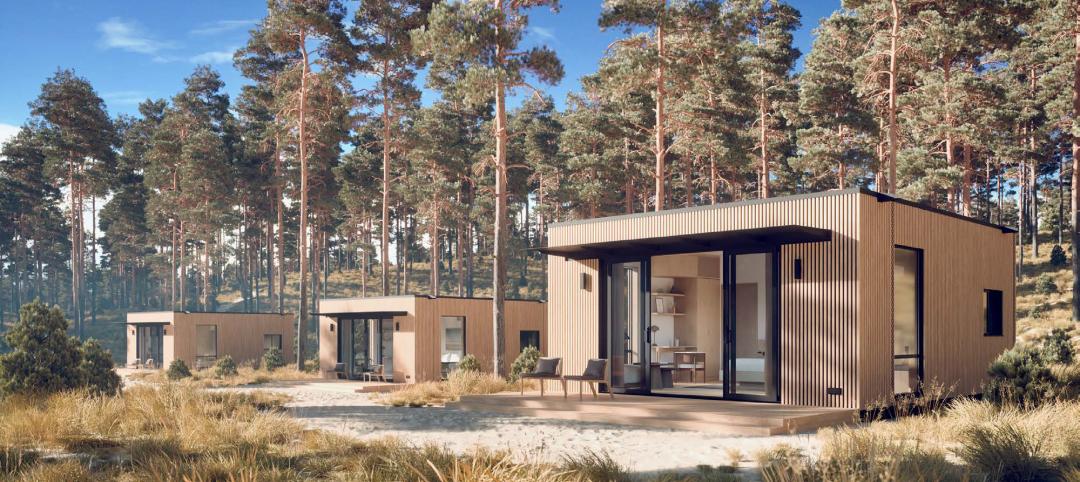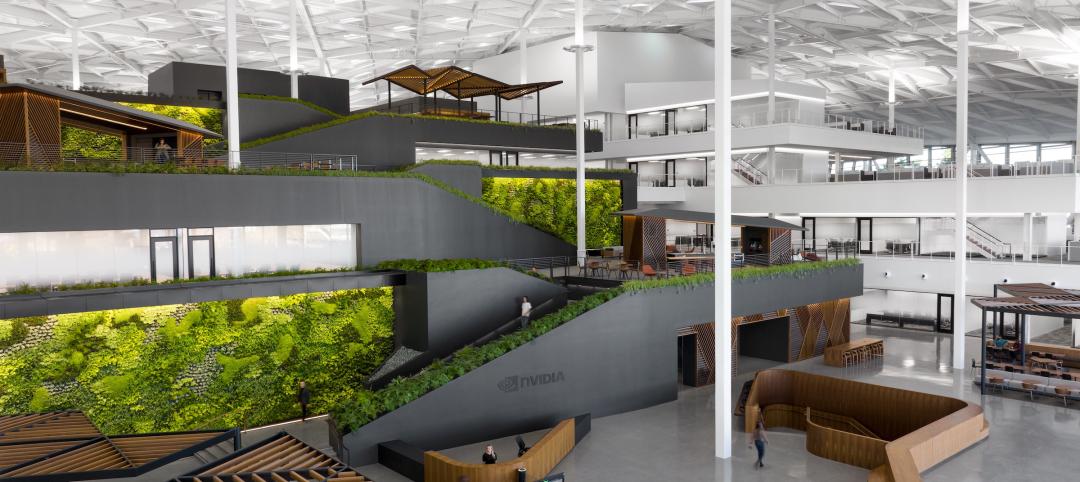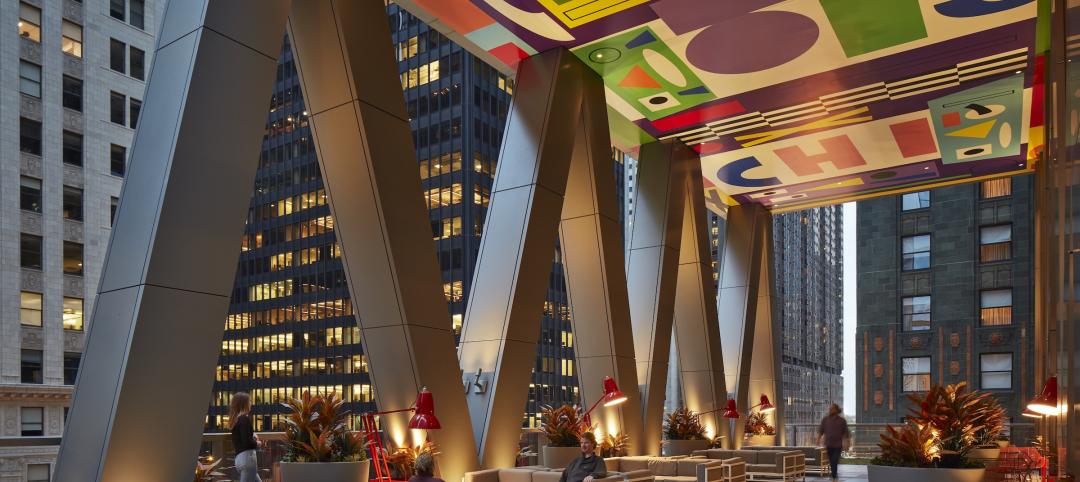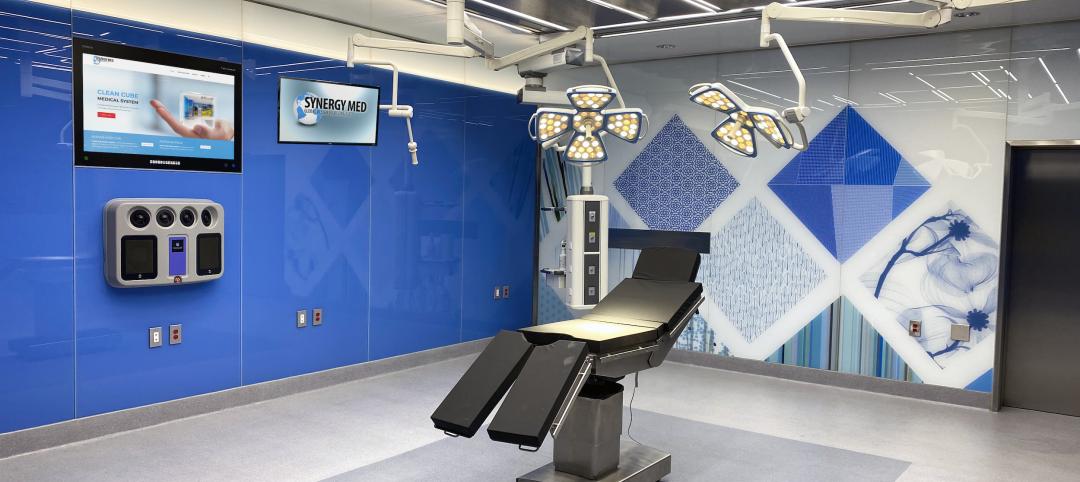The 7,000-acre Research Triangle Park (RTP) in North Carolina, founded in 1959, is the largest research park in the U.S. Nestled near Durham, Raleigh, and Chapel Hill, the park is home to more than 300 companies, 50,000 employees and 10,000 contractors focused on research, biotech, life sciences, and computing.
In March 2019, the Research Triangle Foundation, which owns and manages the park, announced its plans to construct Boxyard RTP, a 15,000-sf development within the park’s Frontier RTP campus made from repurposed shipping containers. Boxyard RTP, which is in the planning stages and is scheduled to open later this year, would be the park’s first food and retail complex. It will have space for up to nine food and beverage vendors, as well as several retailers and service providers.
The food and beverage container spaces will come with partial kitchen equipment upfits. The complex will include covered spaces for seating, special events, and performances.
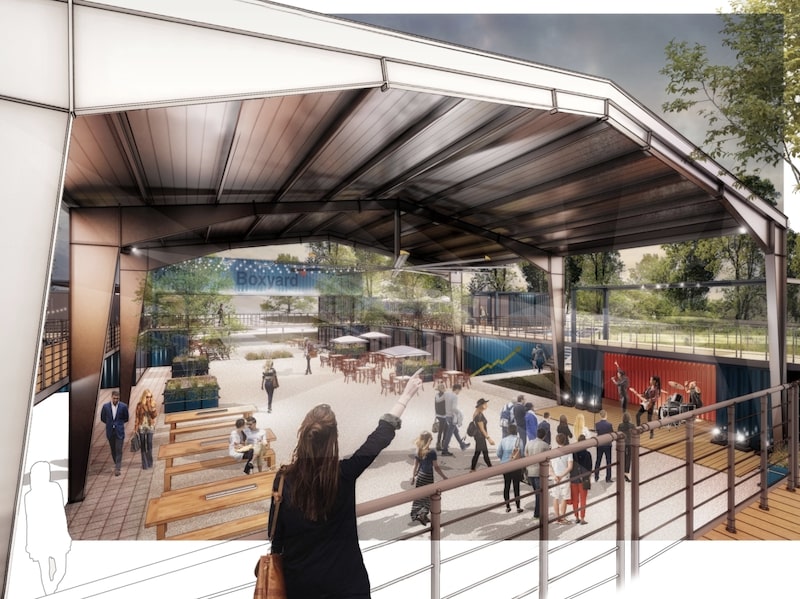 Performance space will face the courtyard at Boxyard RTP. Rendering: CallisonRTKL
Performance space will face the courtyard at Boxyard RTP. Rendering: CallisonRTKL
“Boxyard RTP is a workhorse opportunity for RTP and the region,” says Scott Levitan, president and CEO of the Research Triangle Foundation, in a prepared statement. “Experimental food, libations and retail, cool programming and event opportunities will flip the energy switch for RTP and our neighborhood communities.”
The Boxyard concept takes its name and inspiration from an existing development of 39 repurposed containers in the East Village district of Tulsa, Okla., developed by Nelson + Stowe Development and opened in December 2016. (The contractor on the Tulsa project was Ross Group, and the fabricator was Cisco Containers.)
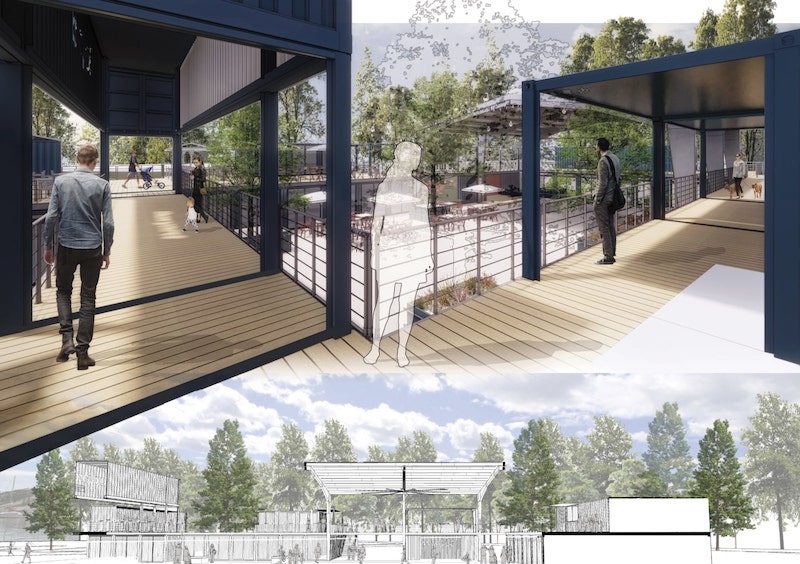 The concept aspires to retain as much of the lot's landscaping and trees as possible. Rendering: CallisonRTKL
The concept aspires to retain as much of the lot's landscaping and trees as possible. Rendering: CallisonRTKL
SHIPPING CONTAINER CONCEPT DESIGN PRESERVES NATURE
At Research Triangle Park, Boxyard RTP’s 38 shipping containers will be situated on a 12-acre wooded lot once dominated by railroad interchanges. CallisonRTKL, which designed the North Carolina concept, is incorporates existing landscaping and trees. The prefabricated shipping containers are modular and can be stacked, so minimal site disturbance will occur during construction.
The modular design is also flexible enough to accommodate the needs of different vendors.
The $7 million Boxyard RTP is organized around a central courtyard, with retail, food, and beverage stalls throughout the public space. The performance stage will face the courtyard, and upper level patios will provide seating and walkways. (Maverick Partners Realty Services is the leasing agent for this project.) As of this morning, Boxyard RTP’s website listed 10 vendors that have committed to leasing space, ranging from a brewery and a virtual-reality game room to a boutique flower shop.
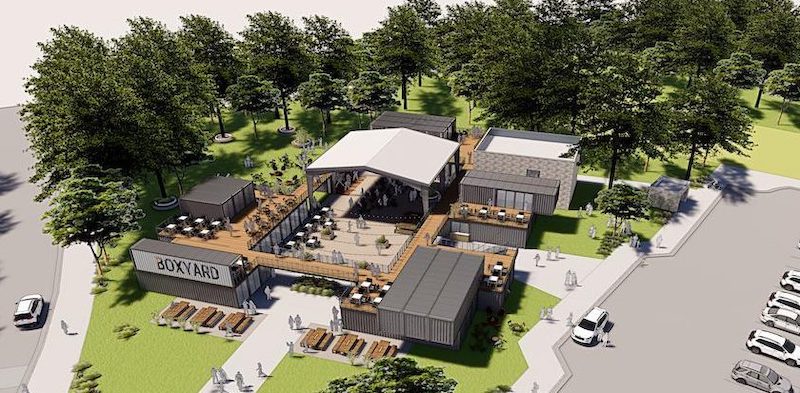 The $7 million Boxyard RTP complex will sit on 12 acres within the park's Frontier campus. Image: WRAL
The $7 million Boxyard RTP complex will sit on 12 acres within the park's Frontier campus. Image: WRAL
Related Stories
Modular Building | Jan 19, 2024
Building with shipping containers not as eco-friendly as it seems
With millions of shipping containers lying empty at ports around the world, it may seem like repurposing them to construct buildings would be a clear environmental winner. The reality of building with shipping containers is complicated, though, and in many cases isn’t a net-positive for the environment, critics charge, according to a report by NPR's Chloe Veltman.
MFPRO+ Special Reports | Jan 4, 2024
Top 10 trends in multifamily rental housing
Demographic and economic shifts, along with work and lifestyle changes, have made apartment living preferable for a wider range of buyers and renters. These top 10 trends in multifamily housing come from BD+C's 2023 Multifamily Annual Report.
Data Centers | Nov 22, 2023
How is artificial intelligence impacting data center design?
As AI is reshaping how we interact with machines and the world around us, the design of data centers needs to adapt to this fast-changing landscape. So, Page pairs expert thinking with high-performing solutions to meet the needs of rapidly advancing technologies.
Modular Building | Oct 11, 2023
Development startup brings modular solution to hospitality industry
The company's approach extends to various types of accommodations, from landscape hotels and cozy bed and breakfasts to compact micro hotels and food and wine-themed properties.
Giants 400 | Aug 22, 2023
2023 Giants 400 Report: Ranking the nation's largest architecture, engineering, and construction firms
A record 552 AEC firms submitted data for BD+C's 2023 Giants 400 Report. The final report includes 137 rankings across 25 building sectors and specialty categories.
Giants 400 | Aug 22, 2023
Top 175 Architecture Firms for 2023
Gensler, HKS, Perkins&Will, Corgan, and Perkins Eastman top the rankings of the nation's largest architecture firms for nonresidential building and multifamily housing work, as reported in Building Design+Construction's 2023 Giants 400 Report.
Affordable Housing | Jul 27, 2023
Repeatable, supportive housing for the unhoused
KTGY’s R+D concept, The Essential, rethinks supportive housing to support the individual and community with a standardized and easily repeatable design.
Healthcare Facilities | Jul 19, 2023
World’s first prefab operating room with fully automated disinfection technology opens in New York
The first prefabricated operating room in the world with fully automated disinfection technology opened recently at the University of Rochester Medicine Orthopedics Surgery Center in Henrietta, N.Y. The facility, developed in a former Sears store, features a system designed by Synergy Med, called Clean Cube, that had never been applied to an operating space before. The components of the Clean Cube operating room were custom premanufactured and then shipped to the site to be assembled.
Affordable Housing | Jul 12, 2023
Navigating homelessness with modular building solutions
San Francisco-based architect Chuck Bloszies, FAIA, SE, LEED AP, discusses his firm's designs for Navigation Centers, temporary housing for the homeless in northern California.
Modular Building | Jul 6, 2023
Lennar, Mastry Ventures make multi-million dollar investment in net-zero prefab homes
Mastry Ventures and LENx, the venture arm of homebuilder Lennar, have co-invested in Vessel Technologies’ next-generation housing product.


